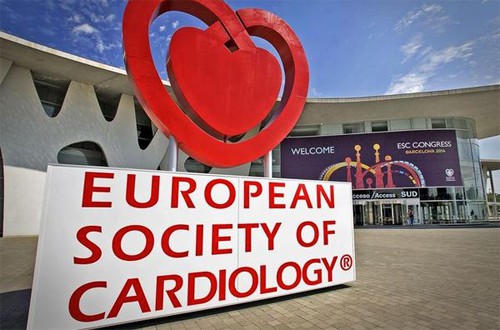
Sanofi and Regeneron’s PCSK9 inhibitor alirocumab has become the first drug in the class to show an impact on cardiovascular events, albeit in a retrospective analysis.
A post hoc analysis from the ODYSSEY LONG TERM trial found a lower rate of cardiac death, myocardial infarction, stroke and unstable angina requiring hospitalisation in patients treated with alirocumab versus placebo. This data was presented at the European Society of Cardiology (ESC) Congress in Barcelona.
The results of an ongoing prospective trial (ODYSSEY OUTCOMES) will be needed to confirm the preliminary finding, but the results give an indication of the potential clinical benefit of alirocumab and other members of the PCSK9 class, including Amgen’s evolocumab – which has just been submitted for approval in the US – and Pfizer’s bococizumab.
Expectations are high that the class as a whole will help people who fail to reduce cholesterol levels despite treatment with statins – or who cannot tolerate them – reach treatment targets and reduce cardiovascular complications. If that promise is fulfilled, sales of the drugs are expected to reach several billion dollars a year.
The primary outcome measures in the LONG TERM study were a 61% reduction in LDL-cholesterol levels from baseline with Sanofi and Regeneron’s drug, which compared to a 1% increase with placebo, with more than 80% of patients on alirocumab reaching LDL-cholesterol targets.
Safety data was also positive, given that there have previously been suggestions that the PCSK9 class could be under regulatory scrutiny of their potential to cause neurocognitive adverse events. The most common side effects were nasopharyngitis, upper respiratory tract infections and injection site reactions and there was no evidence of any neurocognitive effects.
Jennifer Robinson, a cardiologist at the University of Iowa who is leading the LONG TERM study, said both the safety and efficacy data are encouraging, particularly as the trial is still ongoing and does not complete until next year.
Sanofi and Regeneron also presented data from three other trials in the OSYSSEY programme – COMBO II, FH I and FH II – which reinforced the cholesterol-lowering efficacy of the drug.
COMBO II found that alirocumab was significantly more effective than ezetimibe when added to the highest tolerable dose of statins in patients who had inadequate LDL-cholesterol reductions, reducing baseline levels by 51% and 21% respectively.
Meanwhile, the FH I and II trials involved patients with heterozygous familial hypercholesterolaemia (HeFH), a genetic predisposition to elevated cholesterol levels in the blood which is highly resistant to lipid-lowering therapies.
Adding alirocumab to statin therapy reduced LDL-cholesterol by around 50 per cent, while patients taking placebo saw gains of 8%-9% after a year’s treatment.
“Although a large majority of patients in FH I and FH II had high LDL-cholesterol at baseline, at least 70% of alirocumab-treated patients reached their treatment goals,” said trial investigator Michel Farnier of Point Medical in Dijon, France.
Sanofi and Regeneron have tried to close the gap on Amgen in the race to market by buying an FDA priority review voucher originally awarded to BioMarin Pharmaceutical.




